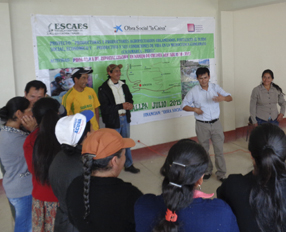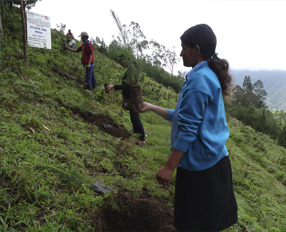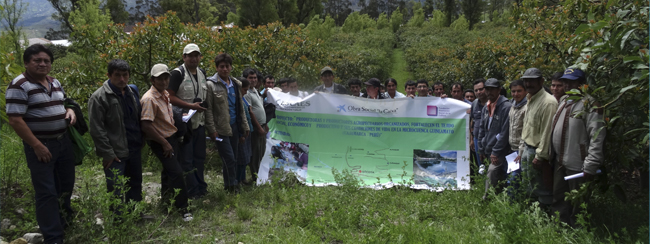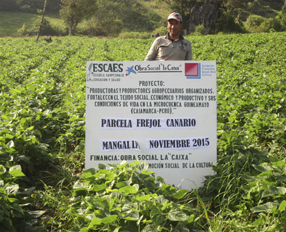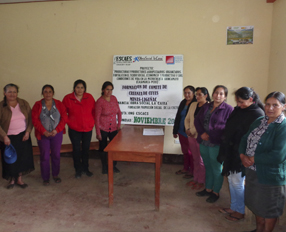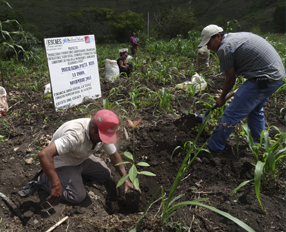The FPSC “Organised agricultural producers strengthen the social, economic and productive fabric and their living conditions in the Guineamayo Micro basin (Cajamarca – Perú)” Project, funded by Obra Social La Caixa, started last July 2015 motivated by the limited ability of small producers to be organised, their disarticulation in the market and their limited knowledge in efficient and profitable commercial management, as well as the lack of public policies that boost agricultural development. That’s why they find themselves limited to a subsistence agriculture, without technical assistance and productive management alternatives, increasing the food insecurity and poverty problems.
The purpose of this project is to improve the performance and give added value to the agricultural production and its competitive insertion in the market.
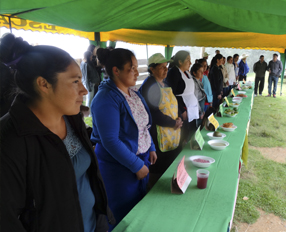
From another part, there has been an improvement in the productive management of beans and avocado cultivation and Guinea Pig’s breeding, in order to competitively insert them in the market. Dialogue and the recovery of previously acquired knowledge, together with the development of proper technical and productive abilities, allow the use of good agricultural practices by means of an agroecological management.
Moreover, those farmers involved in the process have learned how to efficiently manage resources (water, ground, plants) diminishing the erosional processes via the construction of terraces with materials from the area such as stones (rocks); producing alder trees forest species to preserve the grounds and environment; and using the live barriers technique. Also, work has been done to get the optimization and enlargement of irrigation systems that will strengthen the productive base on their plots.
